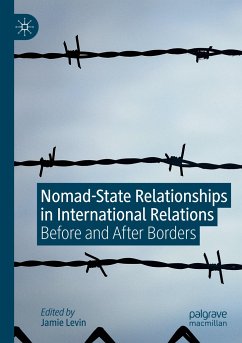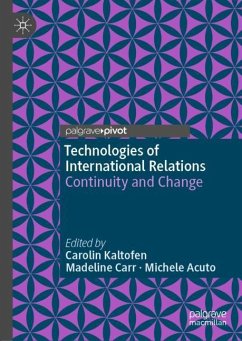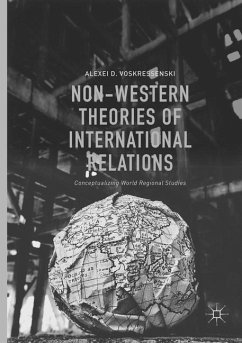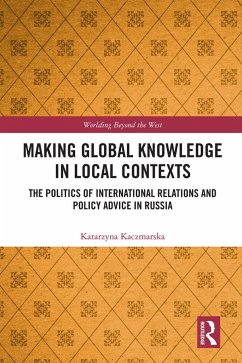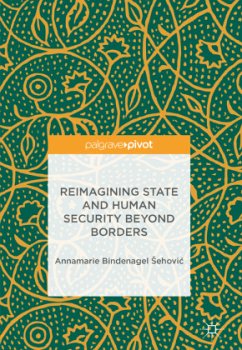
Nomad-State Relationships in International Relations
Before and After Borders
Herausgegeben: Levin, Jamie

PAYBACK Punkte
57 °P sammeln!
This book explores non-state actors that are or have been migratory, crossing borders as a matter of practice and identity. Where non-state actors have received considerable attention amongst political scientists in recent years, those that predate the state-nomads-have not. States, however, tend to take nomads quite seriously both as a material and ideational threat. Through this volume, the authors rectify this by introducing nomads as a distinct topic of study. It examines why states treat nomads as a threat and it looks particularly at how nomads push back against state intrusions. Ultimat...
This book explores non-state actors that are or have been migratory, crossing borders as a matter of practice and identity. Where non-state actors have received considerable attention amongst political scientists in recent years, those that predate the state-nomads-have not. States, however, tend to take nomads quite seriously both as a material and ideational threat. Through this volume, the authors rectify this by introducing nomads as a distinct topic of study. It examines why states treat nomads as a threat and it looks particularly at how nomads push back against state intrusions. Ultimately, this exciting volume introduces a new topic of study to IR theory and politics, presenting a detailed study of nomads as non-state actors.





